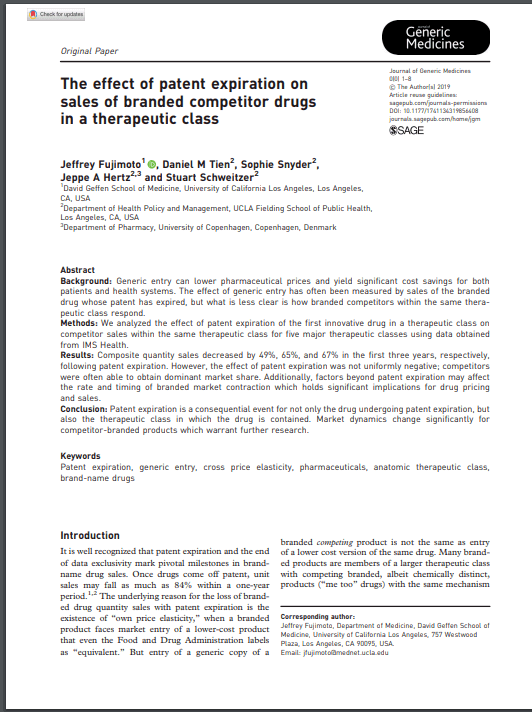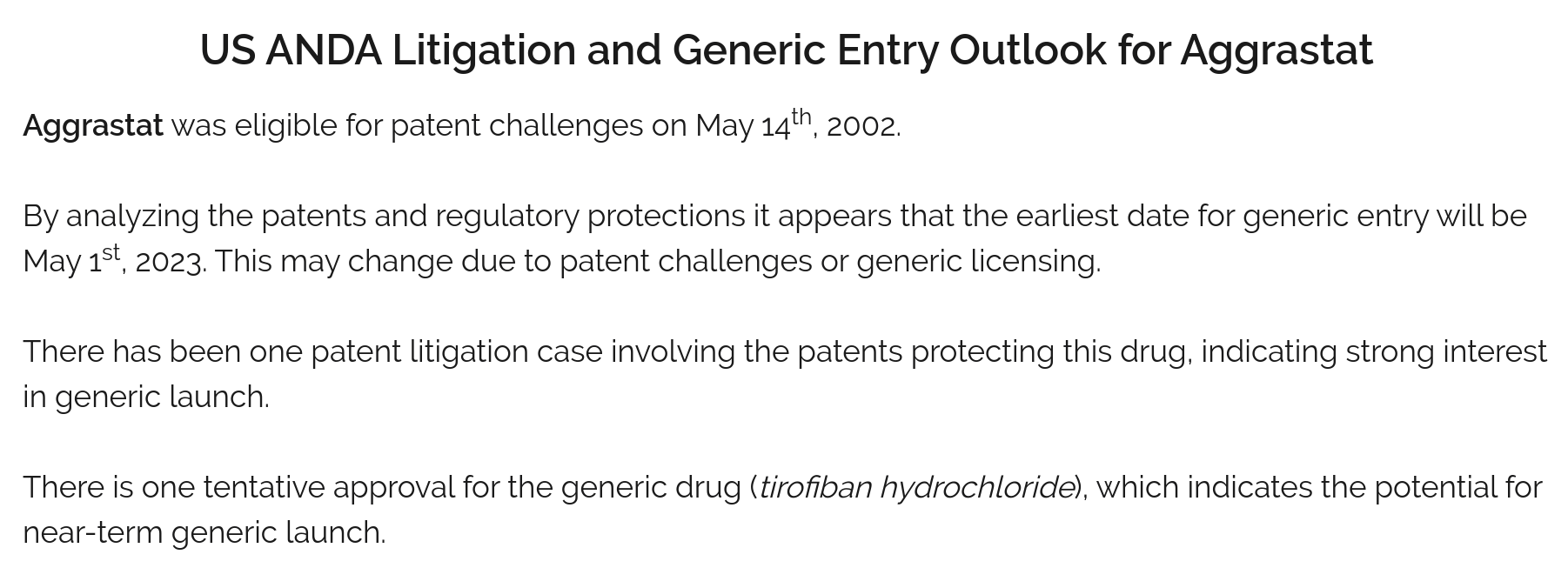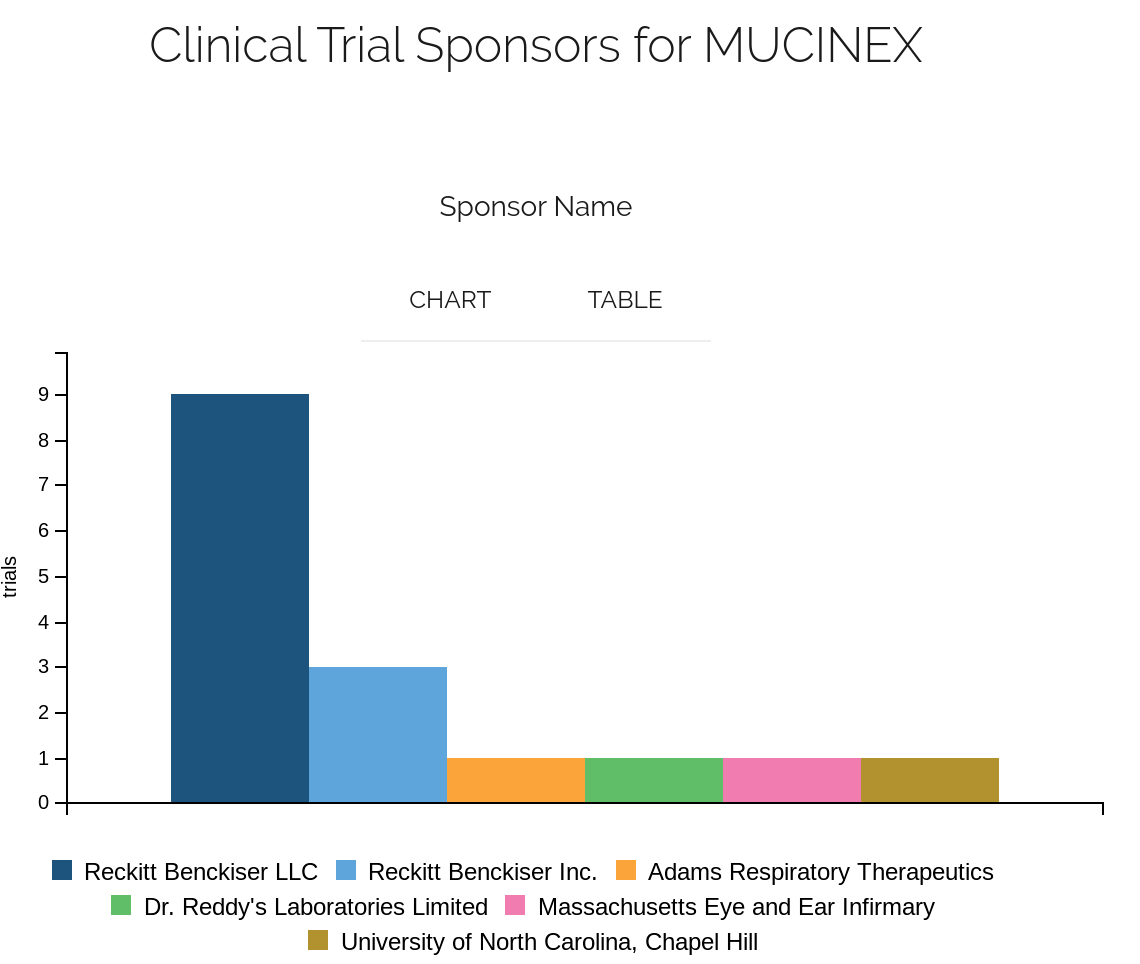In the pharmaceutical industry, patent expiration marks a pivotal turning point in a drug’s commercial lifecycle. While often viewed as a threat to revenue streams, expired patents actually represent substantial opportunities for innovative companies willing to explore alternative value creation strategies. This comprehensive guide examines how pharmaceutical manufacturers, generic drug companies, and healthcare enterprises can transform these challenges into profitable ventures through strategic approaches to expired patent portfolios.
Understanding the Pharmaceutical Patent Landscape
Before exploring value extraction strategies, it’s essential to grasp the fundamentals of pharmaceutical patents and their expiration implications.
The Life Cycle of Drug Patents
Pharmaceutical patents typically have a duration of 20 years from the filing date, though this period varies by country and specific circumstances. However, the effective market exclusivity period is considerably shorter due to the lengthy clinical trial and regulatory approval processes that occur after patent filing but before market entry1.
During patent protection, pharmaceutical companies enjoy exclusive manufacturing and selling rights, allowing them to recoup substantial R&D investments through premium pricing. This exclusivity creates the financial incentive necessary to fund the risky and expensive drug development process.
“Patents serve as a crucial tool for protecting intellectual property and incentivizing innovation by granting exclusive rights to inventors for a limited period. However, the journey from patent filing to market success is often long, complex, and fraught with challenges.”4
When patents expire, the landscape undergoes a dramatic transformation. Generic manufacturers can produce and market versions of the medication at significantly lower prices, eroding market share and reducing revenue for the original patent holder1.
The “Patent Cliff” Phenomenon
The term “patent cliff” describes the situation when multiple blockbuster drugs lose patent protection within a short timeframe, resulting in steep revenue declines for pharmaceutical companies. Beginning in 2010, the pharmaceutical industry faced one of the biggest waves of drug patent expirations in history, a phenomenon that continues to shape industry strategy today2.
By the end of 2011, patents on drugs worth $12 billion had expired, and in 2012, that figure increased to more than $30 billion in annual sales. Between 2007 and 2012 alone, generic competition eroded an estimated $67 billion from top drug companies’ annual sales in the United States2.
The impact of these patent cliffs forced pharmaceutical companies to rethink their business models and develop innovative approaches to maintain profitability in an increasingly competitive landscape.
Financial Implications of Patent Expirations
The financial consequences of patent expiration can be severe. Once drugs lose patent protection, lower-priced generics can quickly capture as much as 90% of their sales2. During the patent protection period, drugs often enjoy high profit margins exceeding 90%, but these margins typically contract sharply after expiration as companies must either lower prices to compete with generics or accept a much smaller market share2.
For consumers and healthcare systems, however, patent expirations bring substantial benefits through increased affordability and access. When patents expire, generic makers typically offer products at prices averaging about 30% of the original branded drug2, making medications more accessible to patients and reducing overall healthcare costs.
Strategic Approaches to Generic Drug Development
One of the most direct ways to extract value from expired drug patents is to enter the generic market, leveraging manufacturing expertise and regulatory knowledge.
Timing and Competitive Positioning
Successful generic development requires careful timing and strategic market analysis. Companies should monitor patent expirations and begin preparation well in advance, considering factors such as:
- First-to-file opportunities that may grant periods of generic exclusivity
- Market size and growth potential
- Number of potential competitors
- Manufacturing complexity and capital requirements
- Regulatory pathway complexity
According to industry experts Rena Conti and Ernst Berndt, the introduction of generics typically leads to increased sales volume and total revenue across the market, despite lower prices per unit6. This growth in overall market size creates opportunities for well-positioned generic manufacturers.
Quality Differentiation Strategies
While generics are often viewed as commodities, manufacturers can implement differentiation strategies to command premium prices or gain larger market shares:
- Implementing superior manufacturing standards that exceed regulatory requirements
- Developing enhanced formulations or delivery systems
- Ensuring consistent supply without shortages
- Offering comprehensive support services and educational resources
- Creating distinctive packaging or administration devices
Recent trends show that price reductions post-patent expiry are becoming less dramatic for some drugs compared to historical patterns. This change is attributed to fewer generic manufacturers entering certain markets and rising costs of generic drug development, creating opportunities for higher-quality generic products to maintain better pricing3.
Biosimilars Development Opportunities
As biologic drugs increasingly lose patent protection, biosimilars development represents a growing opportunity with higher barriers to entry but potentially greater rewards. Unlike traditional generic drugs, biosimilars require specialized expertise, sophisticated manufacturing capabilities, and more extensive clinical testing.
Companies with experience in biologics manufacturing or those willing to invest in developing this capability can position themselves advantageously in this high-growth sector, particularly as more biologic blockbusters face patent expiration in coming years.
Repurposing and Reformulation Strategies
Drug repurposing and reformulation strategies offer pharmaceutical companies ways to create new value from compounds with expired patents through innovation and creative problem-solving.
Finding New Applications for Existing Compounds
Drug repurposing involves identifying new therapeutic applications for existing molecules. This approach leverages previous R&D investments and can bring treatments to market faster and at lower cost than developing entirely new compounds.
The advantages of repurposing include:
- Reduced development time due to existing safety data
- Lower development costs through building on previous research
- Potentially higher success rates compared to novel drug development
- Opportunities for new intellectual property protection
As Dr. Jane Smith, Patent Strategy Consultant, notes: “Abandoned patents represent a vast reservoir of untapped knowledge and potential innovations that could revolutionize healthcare if properly leveraged”4. This observation applies equally to expired patents, which contain valuable scientific knowledge that can be repurposed for new applications.
Novel Formulation Development
Reformulating expired patent drugs provides another avenue for value extraction. Companies can develop new dosage forms, administration routes, or release mechanisms that improve patient experience or treatment outcomes. These reformulations may qualify for new patents, effectively extending the commercial life of the drug.
Promising reformulation strategies include:
- Extended-release formulations requiring less frequent dosing
- Alternative administration routes (injectable, transdermal, inhalable)
- Formulations with improved bioavailability or reduced side effects
- Pediatric-specific formulations addressing unmet needs
By addressing healthcare gaps through innovative reformulations, companies can create significant new value from compounds with expired patents.
Combination Therapy Approaches
Combining expired patent drugs with other medications can create novel therapeutic approaches that may qualify for new patent protection. These combination products can offer improved efficacy, reduced side effects, or enhanced convenience for patients.
Effective combination strategies include:
- Fixed-dose combinations of complementary medications
- Pairing drugs with different mechanisms to enhance overall effectiveness
- Adding components that reduce adverse effects of the primary drug
Combination approaches are particularly valuable in therapeutic areas where multi-drug regimens are common, such as cardiovascular disease, diabetes, infectious diseases, and cancer treatment.
Manufacturing Excellence and Operational Optimization
Companies with strong manufacturing capabilities can extract significant value from expired drug patents through operational excellence and process optimization.
Process Innovation for Cost Leadership
When drugs lose patent protection and face generic competition, manufacturing efficiency becomes crucial for maintaining profitability. Process innovation strategies that reduce production costs while maintaining quality provide a sustainable competitive advantage in the post-patent landscape.
Key approaches include:
- Implementing continuous manufacturing technologies
- Automating quality control procedures
- Redesigning production workflows to eliminate inefficiencies
- Optimizing supply chain management
- Applying advanced analytics to manufacturing processes
Companies that achieve cost leadership through manufacturing innovation can remain profitable even in highly competitive post-patent markets.
Scale and Efficiency Advantages
The ability to scale production efficiently represents a significant advantage when entering markets for drugs with expired patents. Companies that can quickly ramp up production to meet demand may capture larger market shares and establish stronger market positions before additional competitors enter.
Effective scaling strategies include:
- Developing modular manufacturing facilities that can be expanded as needed
- Creating flexible production systems capable of handling variable volumes
- Strategically partnering with contract manufacturing organizations for additional capacity
- Establishing global manufacturing networks optimized for regional markets
Scale advantages become particularly important in markets where multiple generic competitors drive prices down quickly after patent expiration.
Quality Systems as Competitive Differentiators
In markets with multiple generic versions of a drug, quality reliability can serve as a significant differentiator. Companies with sophisticated quality management systems may command premium prices or preferred status with healthcare providers and insurers.
Quality-focused strategies include:
- Implementing standards that exceed minimum regulatory requirements
- Providing transparent information about manufacturing practices
- Utilizing advanced analytical methods to ensure consistent product performance
- Developing proactive quality management systems
As recent trends indicate, some brand-name manufacturers have maintained higher prices even after patent expiration through strategies that leverage brand loyalty and perceived quality advantages3. This suggests that quality differentiation can create sustainable value even in competitive post-patent markets.
Strategic Marketing in the Post-Patent Landscape
Marketing approaches play a crucial role in extracting value from drugs that have lost patent protection, helping to maintain brand loyalty and differentiate products in increasingly competitive markets.
Brand Loyalty and Retention Programs
When patents expire and generic alternatives become available, maintaining customer loyalty to the original branded drug becomes critical. Companies can implement various strategies to encourage continued use of their products despite the availability of lower-cost alternatives.
Effective loyalty approaches include:
- Patient assistance programs that reduce out-of-pocket costs
- Prescriber education highlighting the consistency and reliability of branded products
- Value-added services not offered by generic manufacturers
- Loyalty programs providing benefits for continued use
These strategies capitalize on the observation that certain patients and physicians prefer sticking with original branded drugs due to perceived quality or established trust3.
Authorized Generic Strategies
An authorized generic is a version of a branded drug marketed by the original manufacturer or through a licensing agreement with a generic company. This approach allows the original patent holder to capture a portion of the generic market while still maintaining their branded product.
The Viagra case study illustrates this approach. Pfizer’s strategic licensing agreements allowed for a gradual price reduction, demonstrating how companies can effectively manage the patent cliff6. By launching authorized generics, companies can:
- Protect market share by capturing a portion of the generic market
- Implement price segmentation strategies across branded and generic offerings
- Utilize existing production capacity more efficiently
- Maintain quality control over generic versions of their products
Careful timing of authorized generic releases can optimize revenue across both branded and generic market segments.
Dynamic Pricing Strategies
Pricing decisions become increasingly complex as patents expire and competition intensifies. While historically drug prices fell sharply when generic versions entered the market, often decreasing by 80-90%, recent trends show less dramatic price reductions for some products3.
This changing landscape requires sophisticated pricing approaches:
- Tiered pricing for different market segments and geographies
- Value-based pricing tied to demonstrated outcomes
- Strategic positioning relative to generic competitors
- Adaptive pricing that evolves with market conditions
Companies that implement data-driven, dynamic pricing strategies can optimize revenue even in markets with multiple generic competitors.
Leveraging Partnerships and Collaborations
Strategic partnerships can help companies maximize value from expired drug patents by combining complementary strengths and sharing risks.
Strategic Manufacturing Alliances
Rather than competing directly with generic manufacturers, patent holders can form strategic partnerships that benefit both parties. These collaborations might involve licensing agreements, joint marketing arrangements, or supply contracts.
Potential collaborative approaches include:
- Supply agreements providing active pharmaceutical ingredients to generic manufacturers
- Co-marketing arrangements promoting complementary products
- Technology transfers sharing manufacturing expertise in exchange for royalties
- Market allocation agreements dividing territories (where legally permitted)
Strategic manufacturing partnerships can extend the commercial value of drugs beyond patent expiration while reducing competitive pressures.
Licensing and Technology Transfer
Licensing represents another avenue for extracting value from expired patents. Companies can license manufacturing processes, formulation technologies, or other proprietary elements that may not be covered by the expired patent but remain valuable for efficient production.
Effective licensing strategies include:
- Process patent licensing for specialized manufacturing methods
- Brand licensing allowing use of established names in specific markets
- Know-how transfers providing technical expertise beyond patent disclosures
- Data licensing sharing clinical or stability data that supports regulatory filings
The Viagra case study demonstrates how complex licensing arrangements can help manage the transition through patent expiration. When Viagra’s original patent (5,250,534) received a 283-day patent term extension, Pfizer was able to control market entry through strategic licensing decisions5.
Academic and Research Partnerships
Collaborations with academic institutions and research organizations can unlock new value from expired patent drugs through scientific innovation and fresh perspectives. These partnerships can:
- Identify novel applications for existing compounds
- Develop improved formulations or delivery systems
- Generate new intellectual property through collaborative research
- Access specialized expertise and research capabilities
By combining industry resources with academic innovation, these partnerships can revitalize compounds with expired patents and create new therapeutic opportunities.
Regulatory Strategy and Compliance Excellence
Navigating regulatory frameworks effectively is essential for extracting value from expired drug patents, particularly in today’s complex global regulatory environment.
Abbreviated Approval Pathway Expertise
In the United States, the Abbreviated New Drug Application (ANDA) pathway enables generic drug approvals without repeating full clinical trials. Developing expertise in these abbreviated pathways can facilitate faster market entry for drugs with expired patents.
Key strategic considerations include:
- Patent certification strategies, including Paragraph IV challenges when appropriate
- Bioequivalence study design optimization
- API sourcing and quality control systems
- Strategic timing of submissions for competitive advantage
Companies with sophisticated regulatory capabilities can navigate these processes more efficiently, potentially gaining significant advantages in post-patent markets.
International Regulatory Arbitrage
Patent expiration dates and regulatory pathways vary across countries, creating opportunities for geographically staggered approaches to value extraction. Companies can develop strategies that account for these international differences to optimize global revenue.
International considerations include:
- Sequential market entry based on different patent expiry dates
- Adapting submission strategies to country-specific requirements
- Optimizing production locations based on intellectual property and market access
- Leveraging trade agreement provisions affecting market entry options
This international approach can extend the effective commercial life of products facing patent expiration in major markets.
Exclusivity Extensions and Regulatory Incentives
Various regulatory exclusivity provisions can provide market protection beyond patent expiration. Understanding and strategically leveraging these provisions can be an important component of post-patent strategies.
The Viagra case study illustrates this approach perfectly. Pfizer extended the patent’s expiration to April 22, 2020, by performing pediatric clinical trials, which granted six months of “pediatric exclusivity” protection5. This example demonstrates how regulatory exclusivity can effectively extend a drug’s commercial life.
Other exclusivity opportunities include:
- Orphan drug designations for rare disease indications
- New formulation exclusivity periods
- Data protection provisions in various jurisdictions
- Patent term extensions based on regulatory review periods
By strategically pursuing these regulatory incentives, companies can maximize the value of their drug portfolios beyond basic patent terms.
Case Studies in Post-Patent Value Creation
Examining how companies have successfully navigated patent expirations provides valuable insights for developing effective strategies.
The Viagra Patent Strategy
Viagra (sildenafil citrate) provides an instructive example of sophisticated patent management. Approved in 1998, Viagra’s original patent (5,250,534) received a 283-day patent term extension, giving it an expiration date of March 29, 20125.
However, Pfizer had filed a second patent (6,469,012) in 1994, four years before Viagra’s launch. Because this patent was filed before June 8, 1995, its term was 17 years from the grant date rather than 20 years from the filing date. This second patent was granted on October 22, 2002, setting the original expiration date to October 22, 20195.
Pfizer further extended protection by conducting pediatric clinical trials at the FDA’s request, which granted an additional six months of “pediatric exclusivity,” pushing the final expiration date to April 22, 20205. This complex strategy allowed Pfizer to maintain exclusivity for nearly 22 years after Viagra’s initial approval.
Lipitor’s Post-Patent Success
Lipitor (atorvastatin), once the world’s best-selling drug, faced patent expiration in 20116. Pfizer implemented a multi-faceted strategy that included:
- Strategic cost reductions to maintain profitability
- Patient assistance programs preserving brand loyalty
- Launching an authorized generic through partnership with Watson Pharmaceuticals
- Expanding in emerging markets with different patent landscapes
While Lipitor sales eventually declined substantially, these initiatives helped Pfizer manage the transition more effectively than might otherwise have been possible, extracting significant value beyond patent expiration.
Innovative Approaches to Patent Expirations
Other pharmaceutical companies have implemented creative strategies to extract value from expired patents:
- Developing over-the-counter versions of previously prescription-only medications
- Creating premium branded generics with enhanced features or services
- Establishing consumer healthcare divisions focused on post-patent products
- Developing diagnostic tests or monitoring devices that complement off-patent drugs
These examples demonstrate that with creative thinking and strategic planning, patent expiration can become an opportunity for innovation rather than simply a threat to revenue.
Future Trends in Post-Patent Value Extraction
The landscape for extracting value from expired drug patents continues to evolve, with several emerging trends shaping future strategies.
Artificial Intelligence in Drug Repurposing
Artificial intelligence and machine learning are increasingly being applied to drug repurposing efforts. These technologies analyze vast datasets to identify potential new applications for existing compounds, including those with expired patents.
AI approaches include:
- Predictive modeling of drug-target interactions
- Electronic health record analysis identifying unexpected therapeutic effects
- Biological system simulation predicting drug effects
- Natural language processing of scientific literature uncovering overlooked connections
As these technologies mature, they will enhance the ability to find valuable new applications for drugs with expired patents, creating opportunities for companies with strong data science capabilities.
Emerging Market Expansion Strategies
Emerging markets represent significant growth opportunities for drugs with expired patents. These markets often have different competitive dynamics, regulatory frameworks, and healthcare delivery systems than established markets.
Strategic considerations include:
- Adapting product formulations to meet local needs
- Developing market-appropriate pricing strategies
- Navigating region-specific regulatory requirements
- Building local manufacturing and distribution capabilities
Companies that effectively enter and expand in emerging markets can find substantial growth opportunities for products facing intense competition in established markets.
Sustainable Manufacturing Initiatives
Sustainability considerations are becoming increasingly important in pharmaceutical manufacturing. Companies incorporating sustainable approaches into their post-patent strategies may gain advantages with environmentally conscious stakeholders.
Sustainable strategies include:
- Implementing green chemistry principles in manufacturing
- Reducing environmental impacts of production facilities
- Adopting circular economy approaches to resource utilization
- Providing transparent sustainability metrics and reporting
As environmental concerns gain prominence, sustainability may become a more significant factor in differentiating products in post-patent markets, creating new value opportunities for companies with strong environmental commitments.
Key Takeaways
Extracting value from expired drug patents requires a multifaceted approach leveraging various strategies across business functions:
- Understanding the patent landscape is crucial for effective planning and timing of post-patent strategies.
- Generic drug development offers direct opportunities to capitalize on patent expirations, with biosimilars presenting particularly promising prospects.
- Drug repurposing and reformulation can create new value from existing compounds by finding new applications or improving delivery methods.
- Manufacturing optimization enables companies to compete effectively on cost and quality in increasingly competitive markets.
- Strategic marketing approaches can maintain brand loyalty and support premium pricing even after patent expiration.
- Partnerships and collaborations provide opportunities to combine complementary strengths and share risks.
- Regulatory expertise helps companies navigate complex approval pathways and leverage exclusivity provisions beyond basic patents.
- Learning from case studies like Viagra and Lipitor provides valuable insights for developing effective strategies.
- Emerging technologies and markets create new opportunities for value extraction from expired patents.
- Sustainability initiatives may provide differentiation advantages in increasingly competitive post-patent markets.
By thoughtfully combining these approaches and tailoring strategies to specific products and market conditions, companies can transform the challenge of patent expiration into opportunities for continued growth and value creation.
Frequently Asked Questions
What exactly happens when a pharmaceutical patent expires?
When a pharmaceutical patent expires, other companies can produce and sell generic versions of the drug. This typically leads to increased competition, lower prices, and reduced market share for the original drug. The original manufacturer no longer has exclusive rights to produce the medication, though they may retain other intellectual property such as trademarks associated with the brand name12.
How much do drug prices typically fall after patent expiration?
Historically, drug prices fell sharply when generic versions entered the market, often decreasing by 80-90%. However, recent trends show that price reductions post-patent expiry are becoming less dramatic for some drugs due to factors such as fewer generic manufacturers and rising costs of generic drug development. Generic makers typically offer products at prices reported to average about 30% of the price of the original branded drug23.
Can companies extend patent protection beyond the original expiration date?
Yes, companies can sometimes extend patent protection through various strategies. These include filing secondary patents on specific formulations or manufacturing processes, obtaining regulatory extensions such as pediatric exclusivity by conducting studies in children, and developing new formulations or combination products that may qualify for new patents. The Viagra case demonstrates how Pfizer extended protection through both secondary patents and pediatric exclusivity5.
Is it better to develop generics or focus on innovation after patent expiration?
Both approaches can be viable depending on a company’s resources, capabilities, and market position. Many successful companies pursue a balanced approach, using revenues from generic products to fund innovative research while leveraging their existing expertise to compete effectively in post-patent markets. The optimal strategy depends on factors such as therapeutic area, competitive landscape, manufacturing capabilities, and regulatory considerations1.
How can smaller companies compete effectively in markets with expired drug patents?
Smaller companies can compete effectively by focusing on specific niches or capabilities. Strategies might include specializing in complex generics that require sophisticated manufacturing, focusing on specific therapeutic areas where they have particular expertise, developing improved formulations or delivery systems, partnering with larger companies for distribution or marketing, or targeting underserved geographic markets. By developing clear differentiation strategies rather than competing solely on price, smaller companies can find viable opportunities in post-patent markets34.
Citations:
- https://www.qualifyze.com/resources/blog/understanding-the-financial-implications-of-patent-expirations
- https://www.uspharmacist.com/article/drug-patent-expirations-and-the-patent-cliff
- https://www.artixio.com/post/impact-of-drug-patent-expiry-on-prices-recent-trends
- https://www.drugpatentwatch.com/blog/abandoned-and-expired-patents-in-pharma-manufacturing/
- https://www.drugpatentwatch.com/blog/viagra-a-complicated-case-study-of-generic-drug-market-entry-in-the-united-states/
- https://www.drugpatentwatch.com/blog/what-happens-when-a-drug-patent-expires/
- https://remapconsulting.com/pricing/strategies-to-navigate-patent-expiry/
- https://pmc.ncbi.nlm.nih.gov/articles/PMC7717864/
- https://pmc.ncbi.nlm.nih.gov/articles/PMC4899342/
- https://www.biopharmadive.com/news/patent-cliff-pharmaceuticals-top-drugs-monopoly-expiration/715062/
- https://pmc.ncbi.nlm.nih.gov/articles/PMC6132437/
- https://www.greyb.com/resources/drug-patent-expirations/
- https://www.pharmavoice.com/news/drug-patent-expirations-xarelto-abilify-victoza/713384/
- https://www.drugpatentwatch.com/blog/drug-patent-expirations-unlocking-strategic-investment-opportunities/
- https://www.evaluate.com/thought-leadership/expert-insights-from-jd-forecasting-how-to-model-for-loss-of-exclusivity-and-generic-entrants/
- https://www.greyb.com/blog/drug-patents-expiring-2028/
- https://www.drugpatentwatch.com/blog/when-do-drug-patents-expire/
- https://www.drugpatentwatch.com/blog/how-companies-can-extract-value-from-expired-drug-patents/
- https://www.nber.org/digest/sep14/patent-expiration-and-pharmaceutical-prices
- https://caldwelllaw.com/news/learning-from-the-pharmaceutical-industry-how-to-avoid-a-patent-cliff/
- https://www.fiercepharma.com/special-report/top-15-blockbuster-patent-expirations-coming-decade
- https://patentpc.com/blog/how-patent-expirations-influence-private-equity-valuations
- https://www.proclinical.com/blogs/2024-2/top-10-drugs-with-patents-due-to-expire-in-the-next-5-years
- https://www.jocpr.com/articles/the-impact-of-patent-expirations-on-the-pharmaceutical-industry-10233.html
- https://www.alston.com/-/media/files/insights/publications/2005/05/strategies-for-extending-the-life-of-patents/files/biopharm-spruill-may2005/fileattachment/biopharm-spruill-may2005.pdf
- https://jamanetwork.com/journals/jama-health-forum/fullarticle/2822169
- https://pmc.ncbi.nlm.nih.gov/articles/PMC7592140/
- https://adibiip.com/are-old-patents-still-worth-something/
- https://www.drugpatentwatch.com/blog/category/tips-tricks-case-studies/page/2/
- https://www.cnn.com/2019/09/12/perspectives/drug-patents-abuse/index.html
- https://www.biospace.com/9-drugs-losing-patents-or-exclusivity-clauses-by-the-end-of-2023
- https://www.drugpatentwatch.com/blog/top-strategies-for-pharma-profitability-after-drug-patents-expire/
- https://www.congress.gov/crs-product/R46679
- https://www.drugpatentwatch.com/blog/how-long-does-a-patent-last-for-drugs/























